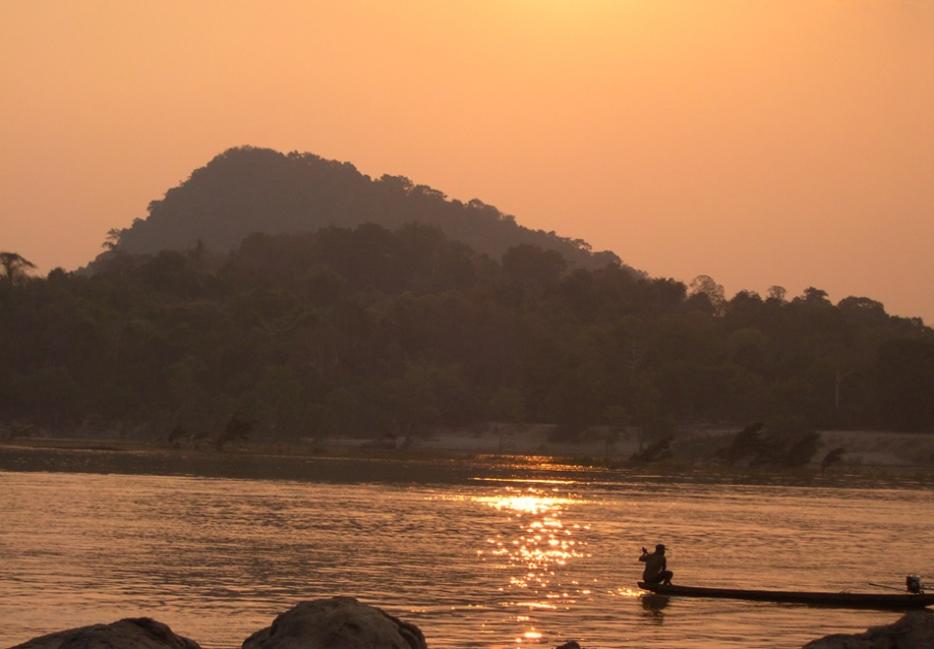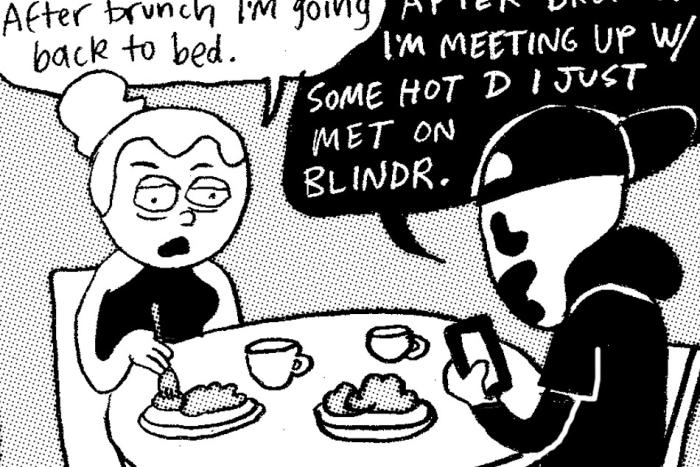In 1951 the English writer Norman Lewis travelled to a Burmese village, on the Irrawaddy River, where the monks in a local monastery kept fish as pets. They had trained the fish to surface on command to receive a blessing, a patch of gold foil applied to their heads for the sake of karma. Tourists were delighted, not just with the ritual but also, in time, with the opportunity: they figured out that tame fish are also ridiculously easy to catch. Soon the fish were eaten almost to the point of extinction. But the monks fought back. They built canals, “and the fish,” writes Lewis in Golden Earth, “were trained upon a danger signal given vocally or by the beating of the banks, to swim up into the monastery enclosure, where the good men stood guard over them, cudgel in hand.” Whenever a boatload of strangers arrived they’d sound the alarm.
Now, you can book a trip to this village online through Exotissimo. Price includes an English-speaking guide with a private, air-conditioned car, lunch in a local restaurant, a “refreshing towel.” No indication if the lunch includes fish. “So many young people here,” says a review on foursquare.com. “Good for sightseeing if you’re a guy.” This is modern travel: accessible, crowdsourced, without the cultural tension of Lewis’ time if you book smartly and follow the beaten track, which by now covers most of the planet. Put a pin in a map, and a German architecture student has already been there, filmed it with GoPro, rated it one to five stars. In fact there’s no practical reason to go at all: save your money, watch Burma on YouTube. And yet the impulse to travel is so strong that most developing countries have evolved into living theatre to accommodate it. The monks don’t carry cudgels, but brochures. In her poem “Questions of Travel,” Elizabeth Bishop wonders where the impulse comes from:
What childishness is it that while there’s a breath of life
in our bodies, we are determined to rush
to see the sun the other way round?
It’s a question that haunts a rich and complex novel by the Sri Lankan-born, Australian writer Michelle de Kretser called, appropriately enough, Questions of Travel, after the Bishop poem. The book tells two stories, in alternating chapters: Laura is an Australian art-school grad with few prospects, an indifferent family, emotionally distant friends and a small inheritance. Ravi is Sri Lankan, a web developer in the early days of the dot.com boom, whose life is shattered in an act of political violence. They both leave home: one to feed that hard-to-pin-down impulse to travel, the other because he has no choice. Laura is a tourist, Ravi is a refugee. They have different reasons to see the sun from the other side, but the same opportunity: in an open, accessible, overly-mapped and (relatively) borderless world, it is possible to solve the problems of home by getting on a plane for elsewhere. In theory. In practice, as it turns out, the problems prove harder to shake.
After rickshawing through Bali on a budget, Laura winds up in London where the scene is oddly, and comfortingly, familiar: “As for the monuments, they were iconic from tea towels,” de Kretser writes. “Then came a red-purple tree, magisterial in a park. Laura had never seen another like it and she recognized it at once — copper beeches were always turning up in novels. That was what it meant to be Australian: you came to London for the first time and discovered what you already knew.” The lesson takes time to sink in but eventually Laura discovers that home and away aren’t that different after all. Her sadness has followed her to London, as if part of her checked baggage: it’s as paradoxically familiar as the tree or monument she’s never seen. Wherever she goes, there it is. Soon she returns to Sydney, where she lands a job with a travel guide publisher.
They have different reasons to see the sun from the other side, but the same opportunity: in an open, accessible, overly-mapped and (relatively) borderless world, it is possible to solve the problems of home by getting on a plane for elsewhere. In theory. In practice, as it turns out, the problems prove harder to shake.
One of her co-workers, as it happens, is Ravi. With the help of an NGO he has scored a travel visa to Australia, where he plans to seek refugee status. After a stint as a kitchen aide in a senior’s home, he gets contract work at the same travel guide publisher in the IT department, and otherwise wanders Sydney like a ghost. “Long afterwards, when Ravi thought back to those endless summer days, what he remembered was loneliness. No one spoke to him. No one knew where he was.” This is the flip side to the openness of the global village: when all destinations are the same, adapted to the traveler (whether she travels by choice like Laura, or by necessity like Ravi), the idea of community dissolves. You are on your own.
And from here de Kretser takes Ravi on an odd journey: he retreats to the new online world (remember the ’90s when it was raw and interesting?), foreign and exotic and unlike the real world which, for Ravi, has become small and threatening. “There were caches and site archives, there were abandoned blogs and personal webpages, there were sites dedicated to family trees that hadn’t been updated for years. Behind the beguiling, hypermodern facade of the web was a landscape littered with ruins. It resisted tourism.”
Or rather, it resisted sanctioned tourism of the kind promoted by the travel guide publisher, which prefers the safe, well-trod path: the guided tours, the refreshing towel, the familiar monuments. Ravi is not a tourist but an old-school traveler, like Norman Lewis, finding relics before they’re destroyed by familiarity, and crowds, even if they resemble graveyards, “their melancholy charms attended by the shock of the accidental and unforeseen.” His web travels get him away, from himself. For Laura, travel is a mirror: in lieu of any discovery of the exotic, she sees only herself, again and again, wherever she goes. For Ravi the nascent internet is a secret community, like the Burmese monastery before the visitors came and took all the fish: quiet, strange, undiscovered by outsiders.
In Questions of Travel, by way of tying a narrative knot, Laura ends up where Ravi’s story began: in Sri Lanka, as a tourist. Lying on her bed, watching a broken ceiling fan not turn, she thinks about where she’ll go next. “The magic land existed. It had to—hadn’t Laura always known it? She would find it yet: in the depths of a wardrobe, at the top of a faraway tree.” And she realizes the guide books have it wrong. “The true guide book would advise: ‘Pay attention, be kind, think twice, shut up.’”
As for answering Elizabeth Bishop’s question of travel, you could do worse than look for the answer to a poetic question in another poem, this time by Kathleen Raine, which also figures in the novel:
Away is hard to go, but no one
asked me to stay.
It’s possible that travel, at least, gives us opportunity to be lonely somewhere else.






